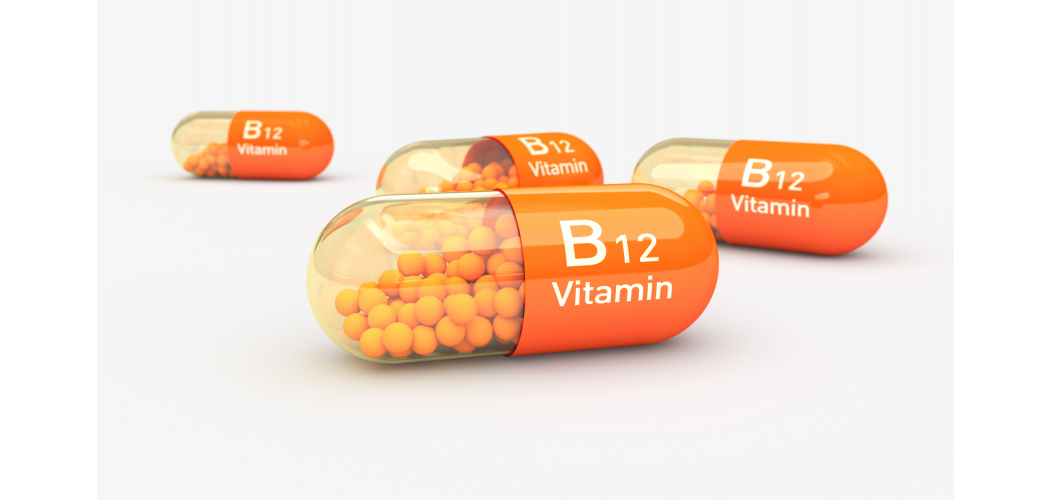Vitamin B12 is an essential vitamin found in foods such as meat, fish, and dairy products.It can also be made in a laboratory and is often taken with other B vitamins.
Vitamin B12 is necessary for the function and development of many parts of the body, including the brain, nerves, and blood cells. Methylcobalamin is the active form of vitamin B12.
Cyanocobalamin, which must be converted to its active form in the body, is the type most commonly used in dietary supplements.
Adults need about 2.4 micrograms (mcg) of vitamin B12 per day, and pregnant or breastfeeding women need more. Babies and children need different amounts of vitamin B12 depending on their age.
What is vitamin B12 deficiency?
Vitamin B12 deficiency occurs when your body doesn't get enough vitamin B12 from the foods or absorbs enough vitamin B12 to function properly. It is an important nutrient that helps make the genetic material for all the cells.
Vitamin B12 deficiency can lead to physical, neurological, and psychological problems if left untreated.
Symptoms of vitamin B12 deficiency:
Anyone can develop a vitamin B12 deficiency at any age. People over the age of 60 are more likely to have vitamin B12 deficiency than other age groups.
Common physical symptoms of vitamin B12 deficiency include:
- Nausea
- Vomiting
- Diarrhea
- Low appetite
- Weight loss
- Sore mouth and tongue
- Yellowish skin
Neurological symptoms of vitamin B12 deficiency include:
- Numbness and tingling in limbs
- Vision problems
- Difficulty remembering things or getting confused easily
- Difficulty walking and talking as usual.
If neurological problems arise from vitamin B12 deficiency, they may be irreversible.
Psychological symptoms of vitamin B12 deficiency include:
- Depression
- Experience changes in stimuli and behavior
Dietary precautions to be taken in the case of vitamin B12 deficiency:
-Options for taking vitamin B12 include:
•Fortified Foods: Fortified foods are food items that possess certain vitamins and nutrients. Fortified foods include certain breakfast cereals, nutritional yeast, plant-based milk, and certain bread. Check the food label (nutrition information) to see if the food is fortified with vitamin B12.
•Vitamin B12 supplements: Many multivitamins contain vitamin B12. There are also dietary supplements that contain only vitamin B12. Talk to your doctor or dietitian to choose the most suitable dietary supplement for you.
-Here are other things you can do to prevent vitamin B12 deficiency:
•Avoid Alcohol: Frequent alcohol consumption can damage your digestive system and make it harder for your body to absorb vitamin B12.
•Do your best to manage digestive disorders: If you have digestive disorders such as Crohn's disease or celiac disease, follow your doctor's advice to stay healthy.
Diagnosis of vitamin B12 deficiency:
Diagnosing vitamin B12 deficiency can be difficult because symptoms may not always be present or may mimic other nutritional deficiencies. Do regular blood tests to detect vitamin B12 deficiency.
Tests used to diagnose vitamin B12 deficiency are complete blood count (CBC) and vitamin B12 blood test levels. Vitamin B12 deficiency is diagnosed when the amount of vitamin B12 in the blood is less than 150/ml.
Facing any of the above-mentioned symptoms or ailments? Don’t worry! We are your one-stop solution. Get diagnosed with Diagnear & know your body’s inside tale at the comfort of your doorstep.



 Login/Sign Up
Login/Sign Up





